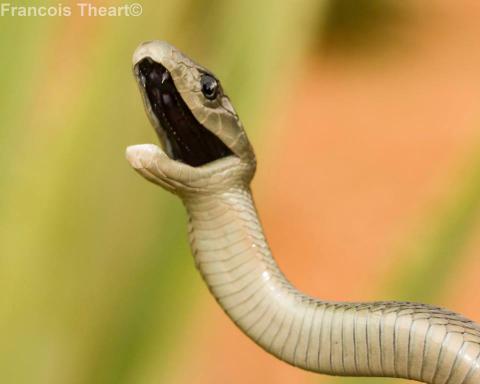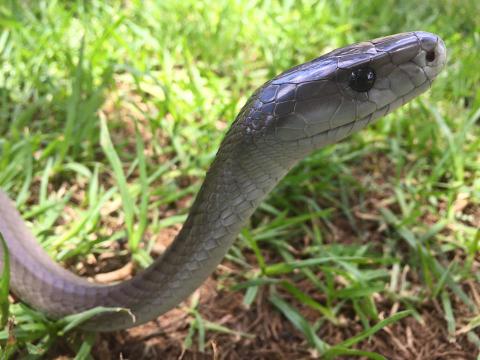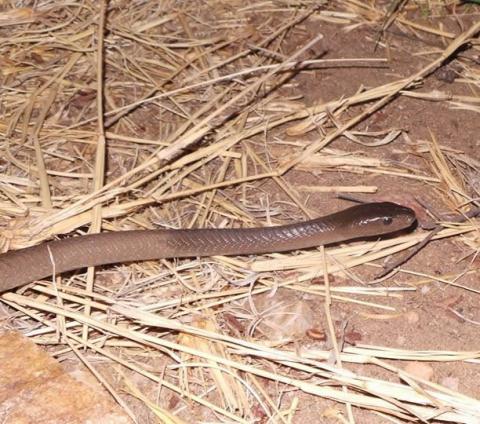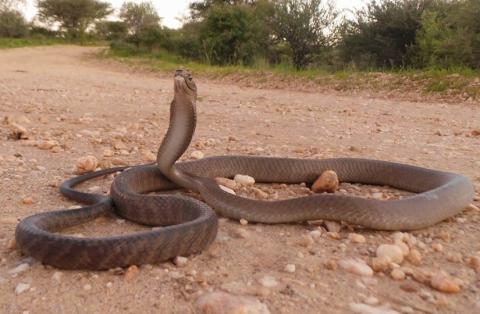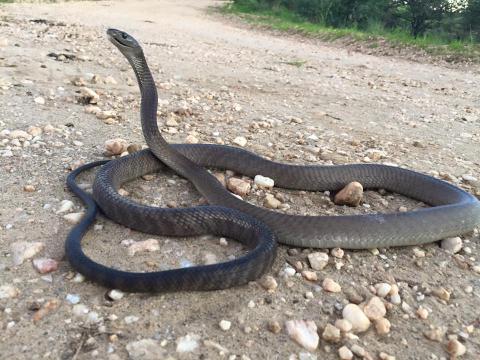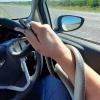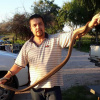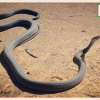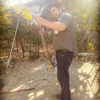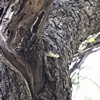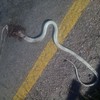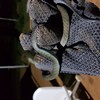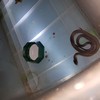Summary details for Dendroaspis polylepis
If you are unsure of the identification of a snake you have observed, you can ask an expert for snake identification by uploading a photo to the Snakes of Namibia facebook page.
You can also get help from their amazing album of infographics of the common snake species in Namibia.
The facebook page also has contact details for snake catchers - people who are experienced in catching and removing snakes - throughout the country.
In the case of a snake bite, email "snakebite" to snakebitedoc@gmail.com. Namibia's snakebite expert - Dr Buys - will respond immediately.
Black Mamba
Dendroaspis polylepis
The Black Mamba is a long agile snake with an elongated coffin-shaped head and a grimace. The inside of the mouth is black. Juveniles are grey to olive, but darkens with age to gunmetal grey. These snakes are rarely black.
This diurnal (active during the day) snake mainly feeds on small mammals and fledgling birds. It also hunts from a permanent lair such as rocky crevices, hollow trees and termite mounds. When disturbed, the snake will seek refuge somewhere else. When threatened, it will raise a third of its body off the ground, spread a small hood and will often gape - exposing the black inner lining of the mouth.
Black mambas inhabit well wooded savannah and is common in rocky outcrops. They are both tree dwelling (arboreal) and ground dwelling (terrestrial).
Highly venomous.
» See all records of Black Mamba Dendroaspis polylepis

